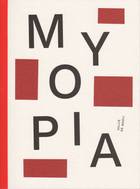Jos Jansen - Seeds - On the Origin of Food Crops, The Eriskay Connection, 2014, Breda

Jos Jansen - Seeds - On the Origin of Food Crops (Front)

Jos Jansen - Seeds - On the Origin of Food Crops (Spine)

Jos Jansen - Seeds - On the Origin of Food Crops (Back)

Sample page 1 for book " Jos Jansen – Seeds - On the Origin of Food Crops", josefchladek.com

Sample page 2 for book " Jos Jansen – Seeds - On the Origin of Food Crops", josefchladek.com

Sample page 3 for book " Jos Jansen – Seeds - On the Origin of Food Crops", josefchladek.com

Sample page 4 for book " Jos Jansen – Seeds - On the Origin of Food Crops", josefchladek.com

Sample page 5 for book " Jos Jansen – Seeds - On the Origin of Food Crops", josefchladek.com

Sample page 6 for book " Jos Jansen – Seeds - On the Origin of Food Crops", josefchladek.com

Sample page 7 for book " Jos Jansen – Seeds - On the Origin of Food Crops", josefchladek.com

Sample page 8 for book " Jos Jansen – Seeds - On the Origin of Food Crops", josefchladek.com

Sample page 9 for book " Jos Jansen – Seeds - On the Origin of Food Crops", josefchladek.com

Sample page 10 for book " Jos Jansen – Seeds - On the Origin of Food Crops", josefchladek.com

Sample page 11 for book " Jos Jansen – Seeds - On the Origin of Food Crops", josefchladek.com

Sample page 12 for book " Jos Jansen – Seeds - On the Origin of Food Crops", josefchladek.com

Sample page 13 for book " Jos Jansen – Seeds - On the Origin of Food Crops", josefchladek.com

Sample page 14 for book " Jos Jansen – Seeds - On the Origin of Food Crops", josefchladek.com

Sample page 15 for book " Jos Jansen – Seeds - On the Origin of Food Crops", josefchladek.com
Other books by Jos Jansen (see all)


Other books tagged Food (see all)








Other books tagged Dutch (see all)









Other books by The Eriskay Connection (see all)






Books to shop at anzenbergergallery-bookshop.com
Hardcover, cloth bound, design by Rob van Hoesel, edition of 500 copies.
Documentary photographer Jos Jansen examines how new food crops are developed and how this process bears upon the world food problem.
Seeds is about Darwin’s natural selection and how it has long been overtaken by high-tech plant breeding which in essence accelerates evolution.
In order to be able to select a plant that is resistant to insect plagues in Africa or droughts in China, literally thousands of plants first have to be made sick, until eventually that one healthy plant remains with just that tiny bit of DNA that allows it to be the sole plant to survive – the chosen one.
The book focuses on the aspect of how new food crops that are resistant to pests and diseases are bred, and therefore contribute significantly to our future food supply. Over many years and in numerous repetitive cycles – crops are crossed, bred, tested and selected again and again, so as to achieve that specific goal.
Behind the images in this project, quintessential questions arise. Who is actually in charge on this planet? Nature? Human beings? A god? Should humans stop interfering with evolution and go back to the authenticity of small-scale farms and city farming? Or rather, is it humanity’s duty to steer evolution so that we can create enough food to feed the booming world population?
Where do you draw the line between acceptable and unacceptable? Between natural and unnatural? And what does ‘natural’ mean anyway? In the book philosopher Bas Haring embraces this by posing: “Why would natural things – plants and animals – be better for us than unnatural or “less natural” things?”
"It's a fascinating trawl through a world that is hidden to most of us but is also quite beautiful. It challenges both our prejudices against the unnatural, but questions what natural actually means. Which is a good job because every time I see anybody growing the monster vegetables or perfect fruit I see in Seeds I wonder at what unnatural chemicals or pesticides they used to grow them." (Colin Pantall)
Order at The Eriskay Connection.
Pages: 112
Place: Breda
Year: 2014
Publisher: The Eriskay Connection
Size: 28 x 24 cm (approx.)




















